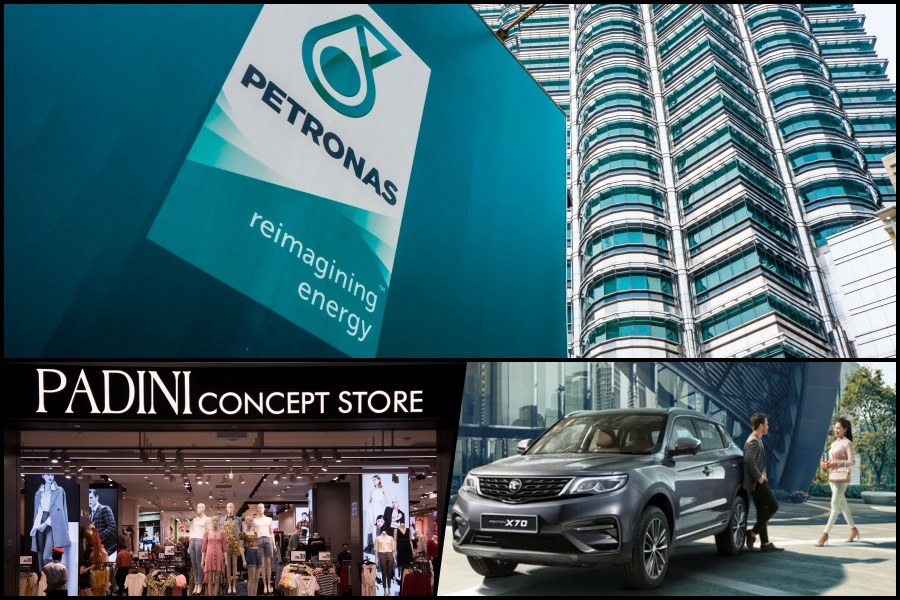MALAYSIA's STRONGEST LOCAL BRANDS
There are no local brands in the top 20 of Malaysia’s top 100 brands. This long-running pattern indicates that Malaysians still identify quality and prestige in international brands, especially when it comes to home appliances, tech and apparel.
Irene Wong, CEO at Grey Malaysia, says that global brands have a competitive advantage because of attractive prices. “Given the choice of paying slightly more for similar (or better) quality but more internationally known and with a greater variety, most [Malaysians] would go for global brands,” she says.
“However, this doesn’t mean that local brands are low quality. In fact, the sentiment of associating local brands with low quality has improved over the last few years with a number of local brands including Grab, Amazin’ Graze, Papparich and Tealive growing or even expanding beyond Malaysia.”
Wong’s sentiment echoes this year’s rankings that show it’s not all doom and gloom for local brands. Many in the overall Malaysia rankings surged this year, indicating a pandemic-driven pattern that Malaysians are taking more care to support brands from their own backyard.
| Ranking | Top local brands in 2019 | Top local brands in 2020 |
|---|---|---|
| 1 | Petronas | Petronas |
| 2 | Proton | Proton |
| 3 | AirAsia | Perodua |
| 4 | Perodua | Maybank |
| 5 | Maybank | Adabi |
| 6 | Ayam Brand | Mydin |
| 7 | Maxis | AirAsia |
| 8 | Padini | Bonia |
| 9 | Adabi | Padini |
| 10 | OldTown | Dutch Lady |
Petronas continues its streak as the country’s top local brand; an unsurprising result for a brand whose name is used to front the country’s most recognisable monument—the Petronas Twin Towers. Wong says that the brand’s 45th anniversary last year also pushed it further into the limelight.
Audrey Chong, chief investment officer at Magna Malaysia, adds that Petronas stood out as a “stabilising beacon” during the pandemic, serving national interest through multiple CSR efforts to give back to the community. These included corporate donations and voluntary salary donations which went towards front-liners for equipment, medical and food supplies.
The biggest surge in rankings in the overall list is shariah-compliant insurance company Takaful. In the last year, a massive government push targeting Muslims increased consumer awareness and drove consumption. Grey’s Wong also attributes Takaful’s dramatic rise to an increasingly financially literate community.
In the automotive sector, local car brands Proton and Perodua buck the ‘international is better’ sentiment by remaining top-of-mind for Malaysians, largely due to competitive prices and lower sales tax for locally assembled vehicles. Wong says that local car brands attract those who either can’t afford to buy an international car or those who perceive cars as merely a means of transportation.
“In terms of marketing, local car brands’ communication tone and manner are more localised. We also see a gradual shift from merely functional communication, which only highlights the benefits and features, to a more brand-building direction,” she says.
“The edginess and luxury feel of local brands are not as strong in comparison to international car brands as yet. But it seems the direction is heading towards mass prestige—a message for everyone to own a (luxury) car to fit their daily needs.”
Retail brands Padini and Bonia—both local names that manage to capture the 'mass prestige' that Wong speaks about—also performed well this year. But do these two brands, which are known for their international look and feel, need to appear ‘Western’ or foreign to be perceived as high-quality?
“By making the brand more ‘Western’, it will make it look more international. In the fast-fashion industry, it helps [Padini and Bonia] to compete with global brands such as H&M, Zara and Mango,” says Wong.
“Although Malaysians are impressed by the individuality and the ways Westerners wear and style their [clothes], this does not dismiss the need for using local models when promoting their products, as Uniqlo does.”












